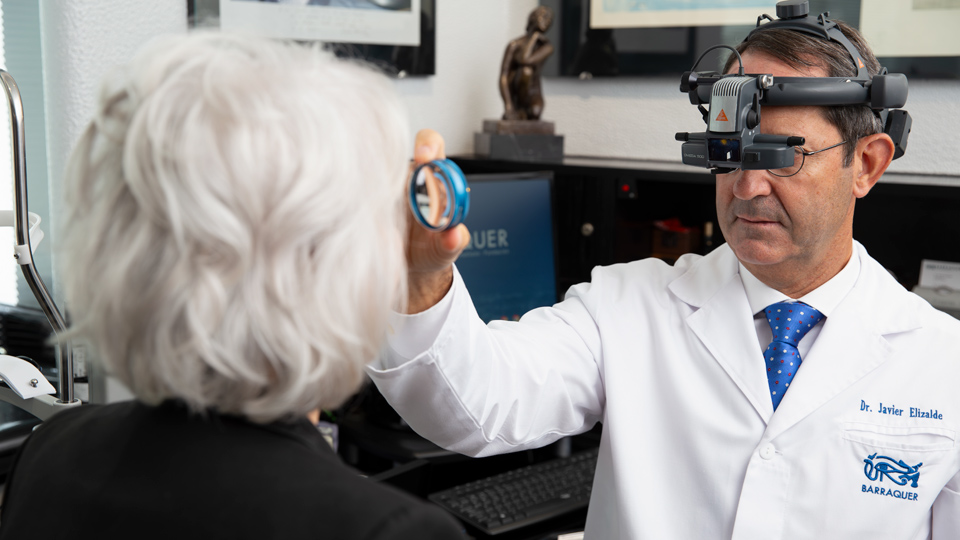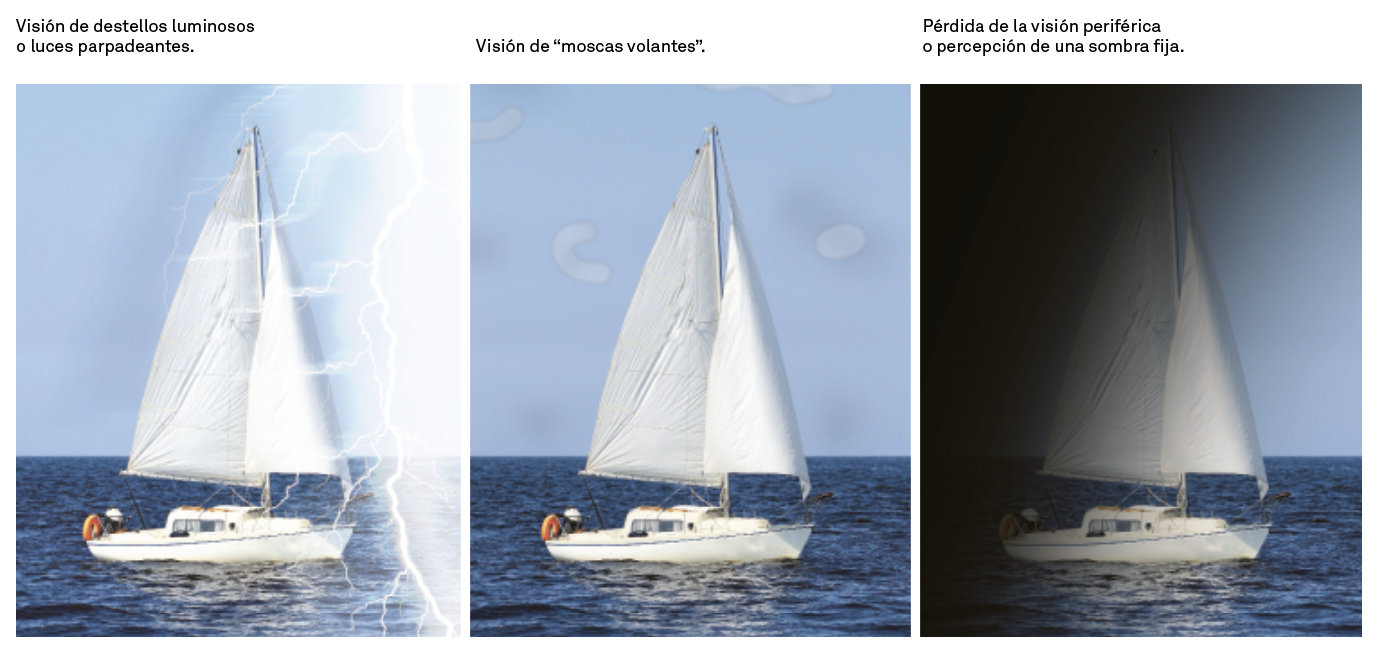How we carry out PRP treatment?
06/02/2026

29/09/2025
Retinal detachment is a common and potentially serious eye condition that occurs when the retina, a light-sensitive intraocular tissue located at the back of the eye, separates from its normal position. This phenomenon interrupts the supply of blood and nutrients to the retina, which can result in permanent loss of vision if not treated properly and promptly.
Symptoms may vary between patients, but there are key warning signs that should be recognised. Identifying them early can make the difference between preserving or losing sight.
| Symptom |
Description |
|
Flashes of light (photopsias) or flickering lights |
This symptom is often an early sign of retinal detachment. The flashes or photopsias are more noticeable at night, become more intense with eye movement, and indicate that there is traction of the vitreous on the retina. |
|
Sudden appearance of moving spots or an increase in “floaters” |
This symptom is linked to the movement of the vitreous gel that fills the eyeball. Sudden separation of the vitreous (posterior vitreous detachment) may, in some cases, cause one or multiple tears in the retina and consequently lead to retinal detachment. |
| Loss of peripheral vision or perception of a fixed shadow |
This shadow typically increases in size over several hours and indicates that the retina is detaching. |

Any sudden change in vision should be assessed by an ophthalmologist. In particular, if the symptoms described occur, it is essential to seek urgent care at a specialist centre.
Treatment is surgical and carried out by a vitreoretinal surgeon, with the aim of repositioning the retina and preventing irreversible damage to vision.
Retinal detachment is not painful, so diagnosis relies entirely on recognising visual symptoms. Early treatment can:
If you experience any sudden visual symptom — such as flashes, floaters, or peripheral shadows — it is vital to act quickly. At the Barraquer Ophthalmology Centre we have leading retina specialists to provide you with an accurate diagnosis and state-of-the-art surgical treatment.
Dr. Javier Elizalde, vitreoretinal surgeon at the Barraquer Ophthalmology Centre